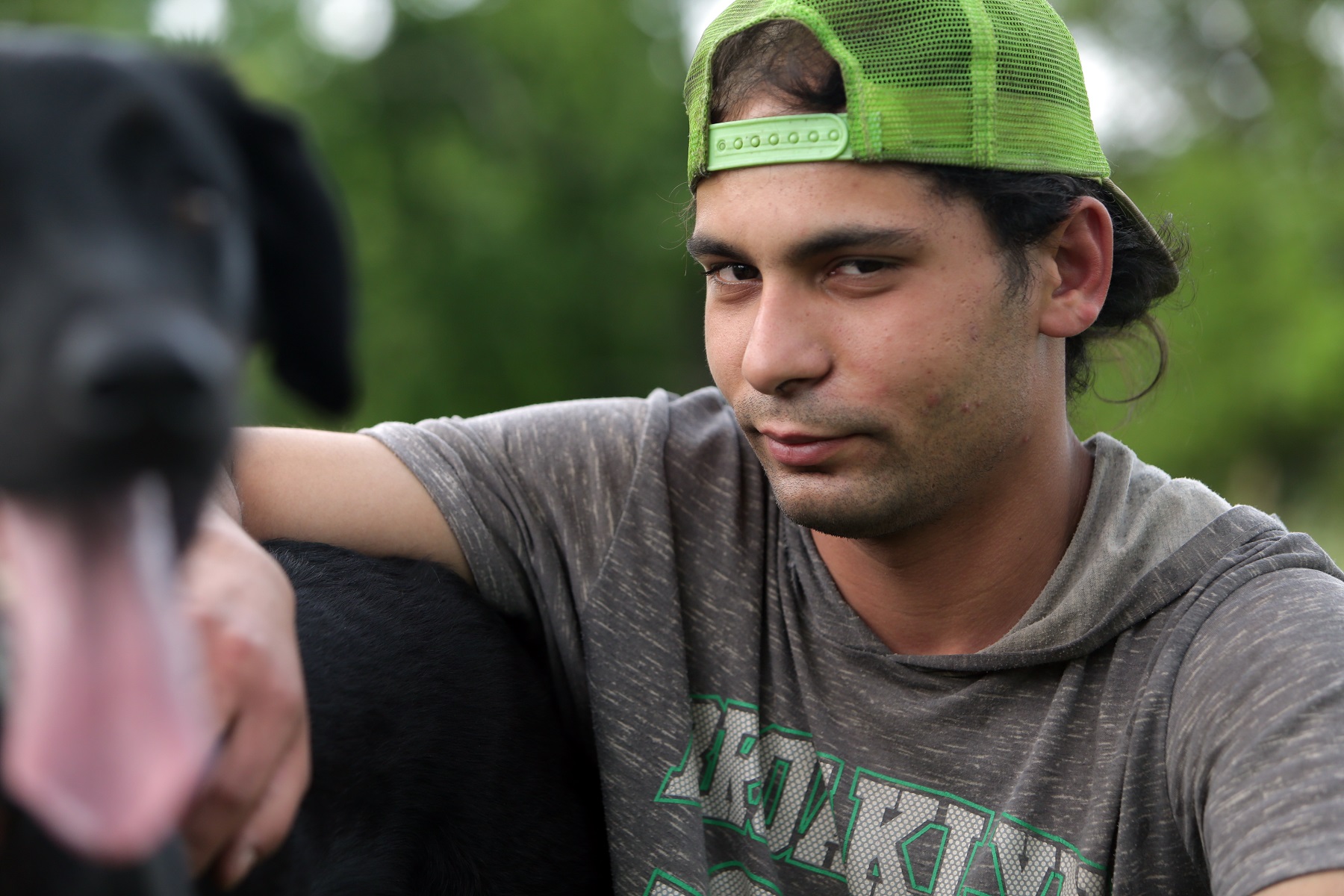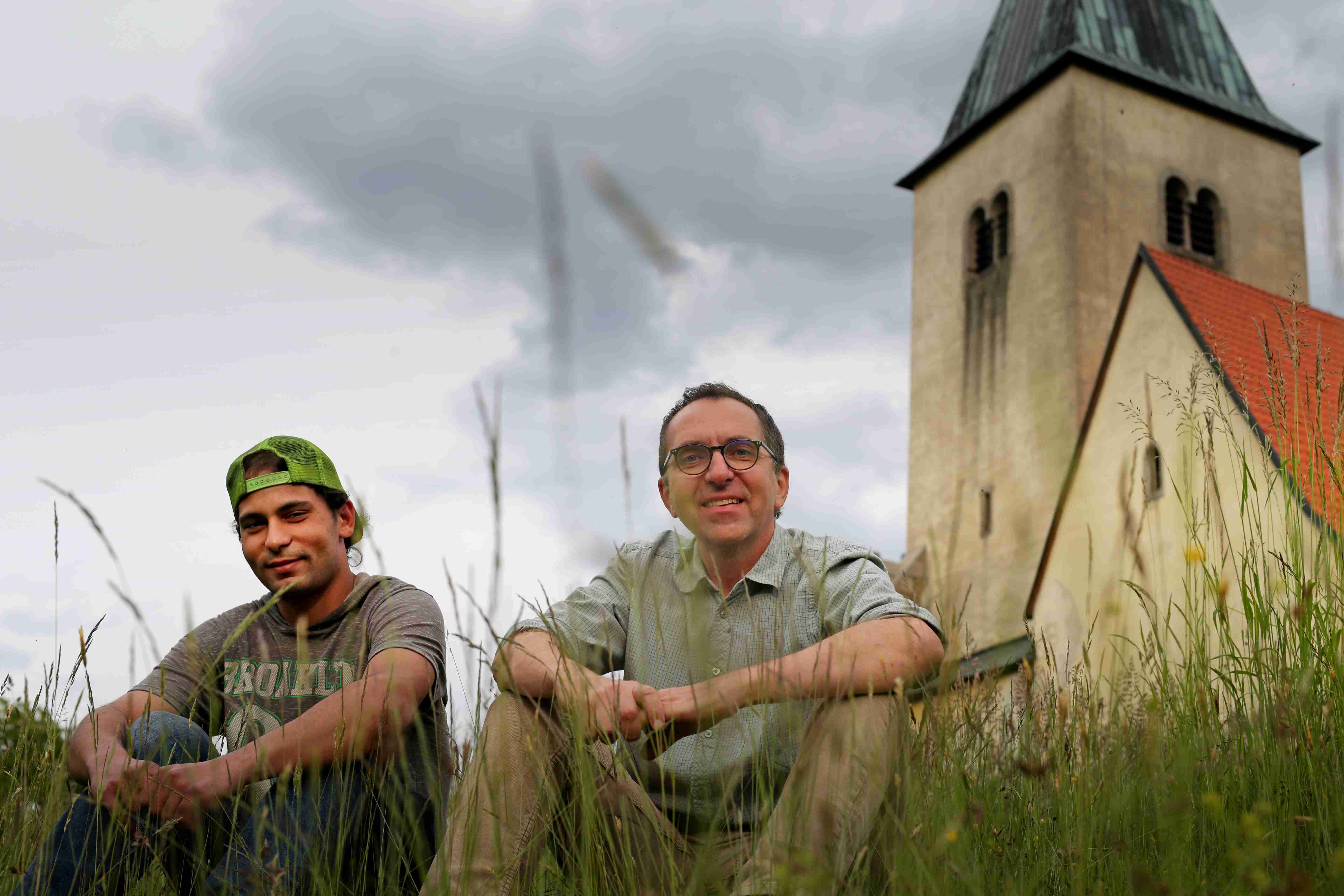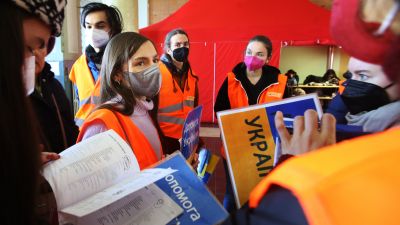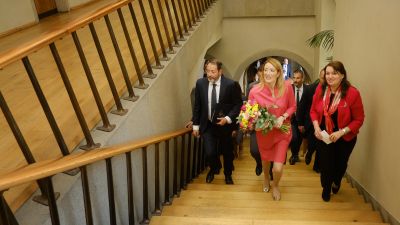Growing up in an orphanage is anything but easy: kids and teenagers are taught to be independent and may be relatively secure for the time being, but they lack everyday experience and personal connections. For many, life in the children’s home, with its specific rules and rhythms, is all they know. The Patron programme, run by Liga otevřeních mužů (League of Open Men or LOM for short), is trying to change that, by providing patrons who can who can show young peoplej ust how day-to-day problems are tackled. From paying bills to fixing the car. In short, to prepare them for when they leave the children's home for the first time as young adults.
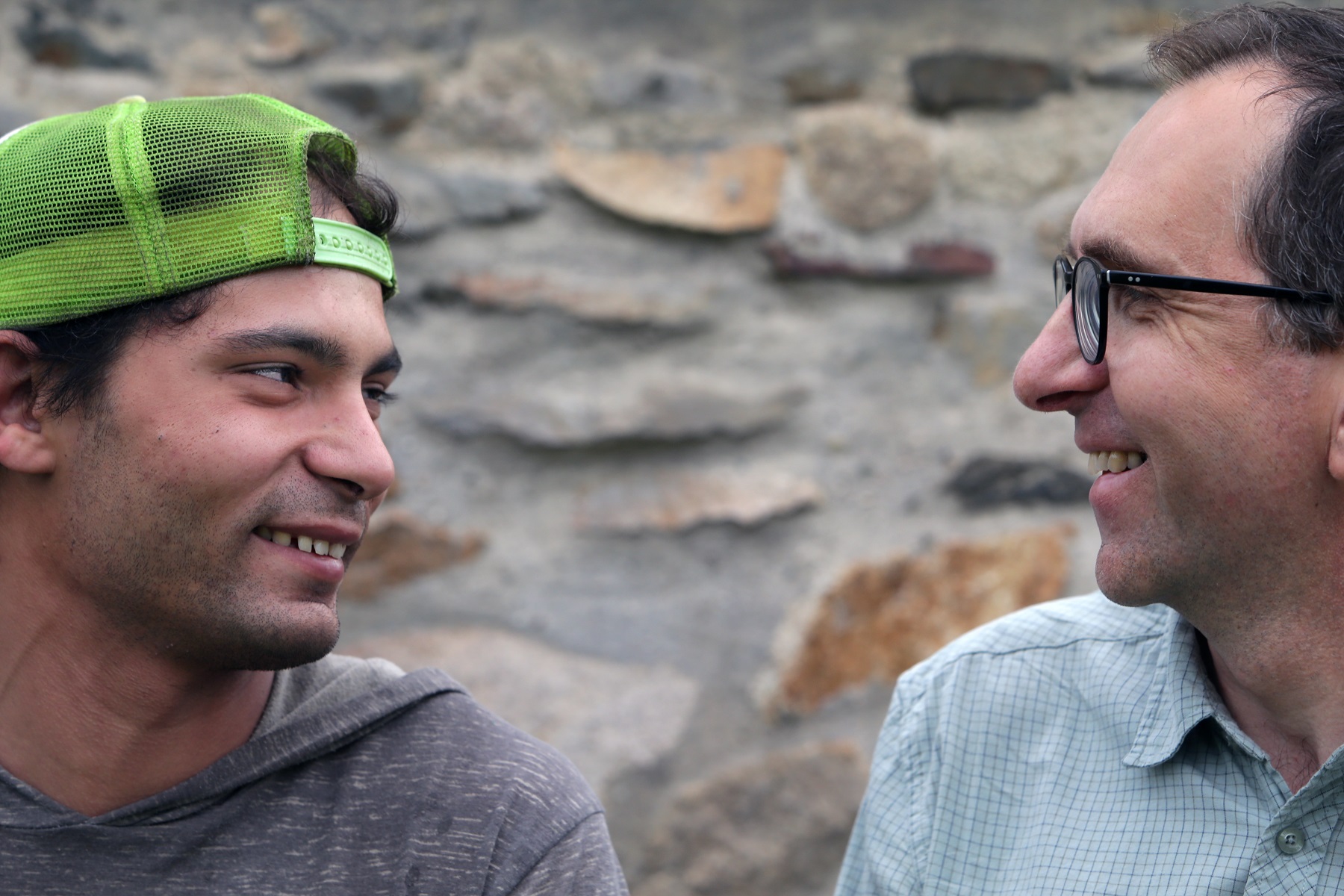
Seeing eye-to-eye: Patrons who have more experience can help young people departing orphanages navigate pitfalls of day-to-day life.
A child growing up in an institution has little chance to experience classic situations one would absorb in a family enviornment or other social contexts. The idea behind Patron is that a year or two before youths reach adulthood, they can get guidance from an older role model whi “has their back” so to speak. A patron is a counsellor, a guide who helps them to step into life outside the institutional area. The aim is to provide space and time to discuss small and ordinary things outside the framework of the children’s home. The eponymous program was founded nearly a decade ago by the non-profit organization LOM. It brought together volunteers (initially only men but also more recently, women) who have the time, desire and aptitude to guide teenagers from homes through the first years of adulthood. Similar to the case of teenager Karel from the area of Benešov in Central Bohemia, outside Prague. How did the relationship with his sponsor develop?

Miroslav Hřebecký (right) wanted to work with the children's home in the area of Benešov, where he also lives, to be on hand to better help Karel.
Miroslav Hřebecký, a graduate of the Faculty of Education at Charles University and former educator, has been a patron for a number of years to 26-year-old Karel, who he has known for almost 10 years. He explains some of the aspects of his role by first outlining what he is not. “I'm not his surrogate dad, I'm not living his life. I offer him my opinions and stories. If he wants to take something from them, it's up to him.” As Hřebecký suggests, patrons can provide context and offer their own experience to help their young charges to better navigate the pitfalls of everyday life; but patrons know and respect that young people need to do the actual heavy lifting on their own.
Friendly and open disucssion of challenges that life brings
“Karel didn't realise at first that he would have any questions. He only knew his world in the orphanage and it seemed to him as a 'given'. I tried to talk to him about my life, my problems... I told him about what having a mortgage was like, the renovation of our house, or how I had crashed the car and how much it cost to fix it. And then I took him to the mechanic’s with me. I also took him to numerous bureaux on occasion, when we were cancelling my grandfather's electricity meter, or to see how things worked at the tax office,” Hřebecký says.
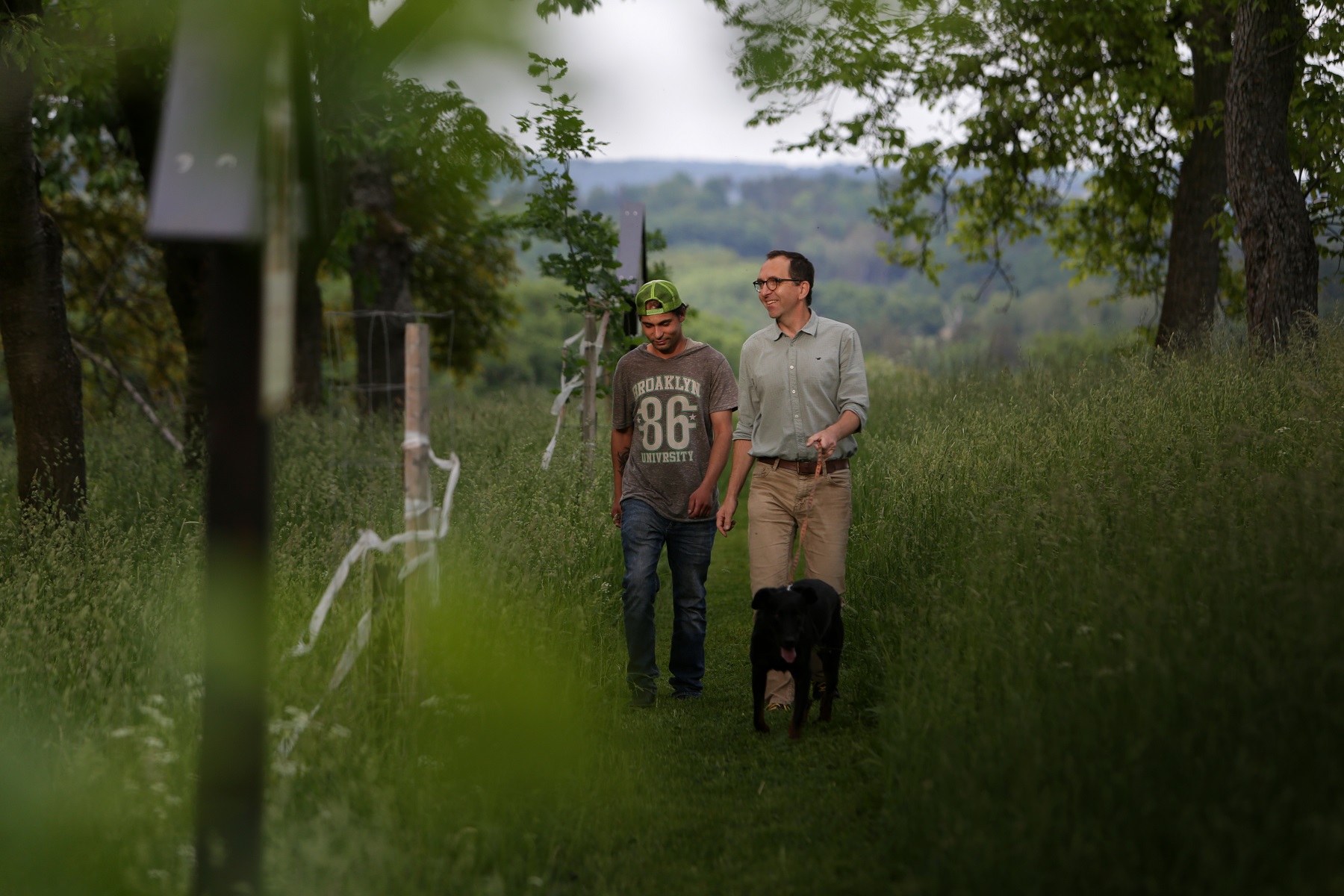
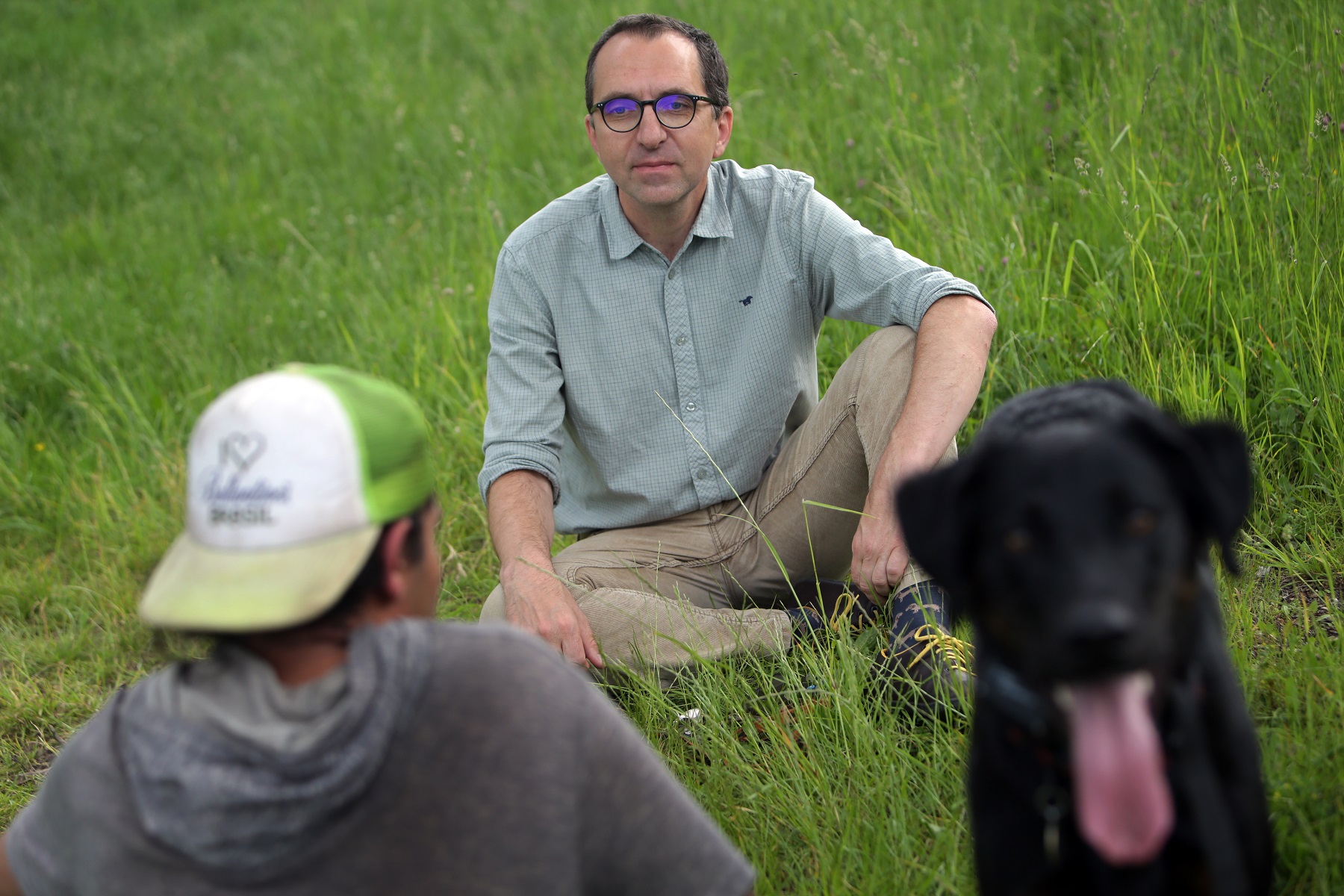
We met Karel and his patron at Konopiště Park (not far from the famous chateau). Not a bad setting for discussion and trading stories.
Meetings usually take place somewhere outdoors and often in nature. Miroslav and Karel used to go for a run or a walk with the dog – anywhere that was pleasant and where they could talk about life and situations that arise. A patron has to take into account that most just leaving the nest of the orphanage have little or no money to spare. Therefore it’s not advisable to meet in restaurants. It is also out of the question for a patron to take his ward out for lunch.
Self-sufficient... with advice from someone who is more experienced
In fact, money is a taboo subject, Miroslav Hřebecký explains: “These young men and women have to learn to take care of themselves, to manage their own incomes. That's why any financial support from a patron is forbidden in the programme. There is no borrowing money or paying off any debts they may have,” points out Hřebecký, who used to be the principal of a progressive high school. That doesn’t mean Hřebecký – as a patron – couldn’t have a tangible impact: he helped the younger Karel get a job at a company nor far from his home. Karel became a locksmith and learned to fend for himself.
To some, day-to-day problems faced may seem trivial, but that’s not the case. For a young man without a family background or support, who grew up under completely different circumstances, these are complete novelties that can be a source of great stress and lead to a personal crisis. “Karel is not a troublemaker, Karel is an honest traveller,” laughs Hřebecký, who today works for EDUin. Karel listens a little shyly. “I'm not aware that he ever got into problems. But from my point of view, he would have faced difficulties if he hadn't found a place to live and a job. I took pains to impress upon him that he really needs to pay his rent and also put some money aside for the unexpected utility bills and so on.” As a former educator, Hřebecký also has to maintain a healthy distance, which is essential in such a relationship. But he was there at key moments to provide support. He was with Karel, for example, at an open doors day of a secondary school when the latter decided to go on to further studies and chose to become a locksmith. Later, Hřebecký helped him find a job in Benešov, where they both live. He is not indifferent to the young man's future - or fate.
“I think he is good at evaluating risky situations quite wisely; he has a nose for it. He's gathered experience from the neighbourhood, seen how some of the boys from the orphanage turned out... They really do live in a bit of a gilded protective cage in the orphanage. On the one hand, they have everything, but preparation for when they leave is lacking,” Hřebecký says, adding that this is why he wanted his charge to be from the orphanage near Benešov, so that he could be more readily available.
“I wanted to help a specific person and in an area where there is a real weak or ‘blind spot’ within society,” Hřebecký says, on why he became a patron.
The desire to help runs deep
“Children end up in orphanages usually because their family didn't work for some reason. And Patron can be a positive role model for them on how an adult should function and how to manage life in adulthood,” project manager Lukáš Talpa, a graduate of the Protestant Theological Faculty at Charles University, told Forum magazine last year.
Last year, Charles University entered into a memorandum of cooperation with the League of Open Men to recruit volunteers from among its employees to join the Patron programme. Volunteers should be over 30 years old, have their priorities aligned and have a stable background. It is also an advantage if they already have a family, perhaps grown children, and therefore more time and energy to devote to volunteering. They simply need to have already done something to be the right role model for young people entering independent life and have something to pass on to them.
A sponsor is a guide, not a surrogate parent. They advise but must also take into account that their suggestions or help will not always (or certainly not immediately) be met with a positive response... It is necessary to keep a constant perspective on the situation, to keep a certain distance in the relationship so both have room to breathe. The project also runs mentoring groups with experts (psychologists or staff of children's homes), which volunteers regularly attend and where they can clarify their actions or be inspired by how others do it, what they are struggling with and what approaches are on offer.
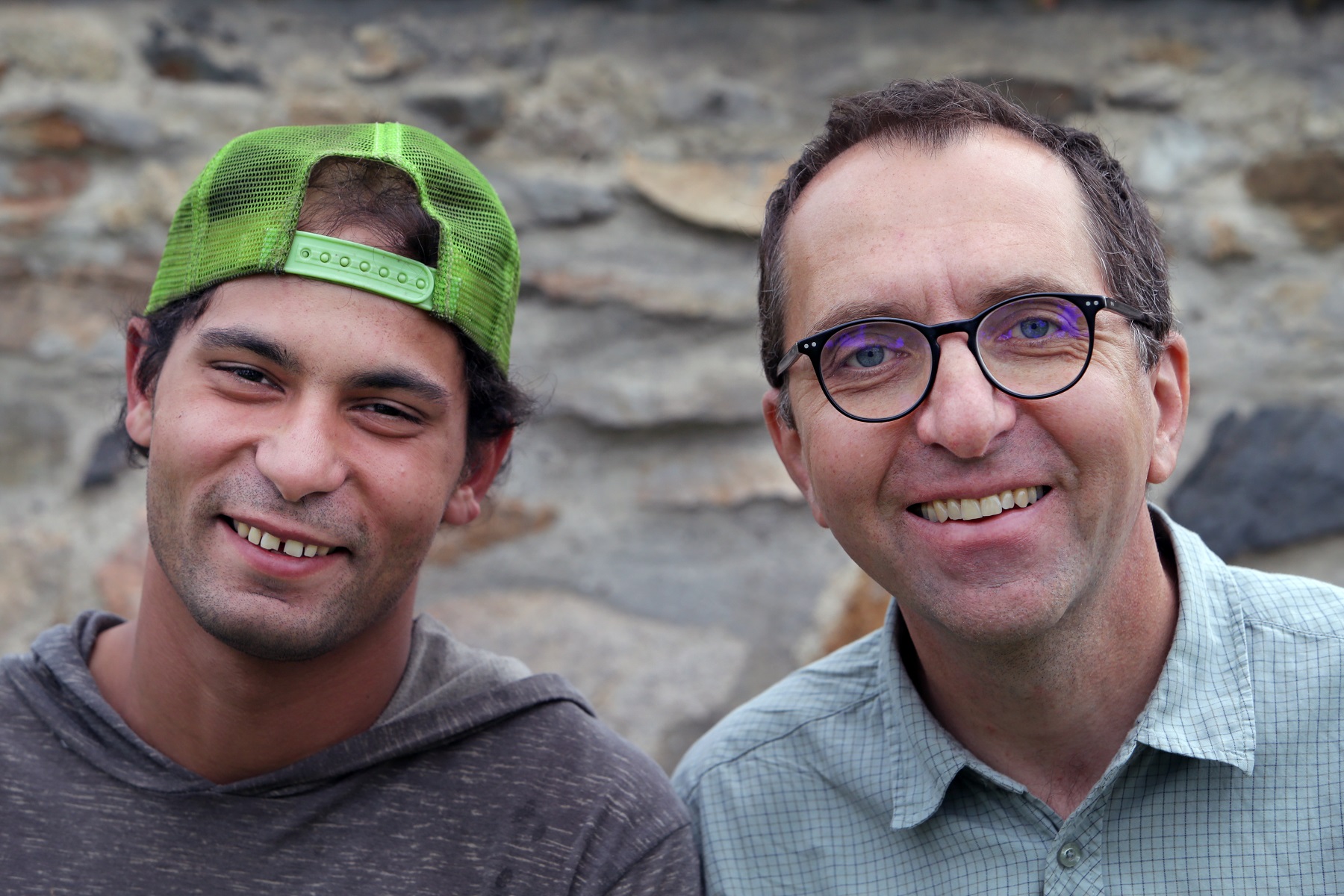
Helping as a Patron can make a difference, can help someone gain a foothold or discover their path and can lead to true friendship.
How to perceive such a relationship? “Take into account that it's a long-term commitment. It's not that 'I want to help, right now, I have time right now, so I'm going to take care of someone for two months and then leave them to their own devices'. No. It's not permanently time-consuming, but when the person needs it, I have to respond,” Miroslav Hřebecký explains. He says the first two years are the most intense, when the young person needs to find a job and a place to live. Once they are settled in and have resolved existential issues, the relationship turns from a mentoring one to one of friendship. In some cases patrons and their former charges move on, in others they can become friends for life.
| What the Patron programme offers and who can get involved | |
|


